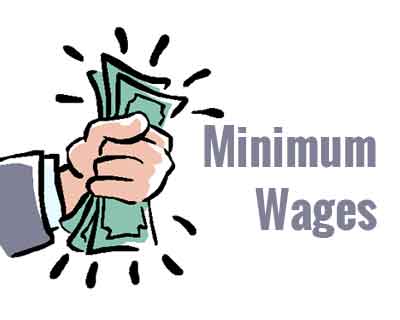Minimum Wages Act, 1948
Crown Aluminium Works vs Their Workmen 1958
The developing countries face unemployment. However, to let every man avail at least the basic amenities, their should be minimum wages provided to him.
Hydro (Engineers) Private Limited vs Workman
The workmen should be provided the wages so as they can afford basic education, and medical amenities. This includes the wages to avail the works for the efficiency of the workers.
Edward Mill Co. Ltd. vs State of Ajmer, 1954
The state makes provisions for the suspension of laissez fair provisions. The State tries to work on the Socialist pattern as enshrined in the Preamble and ensures minimum wages to the individuals.
Bijay Cotton Mill Ltd. vs State of Ajmer, 1955
The freedom of trade under Article 19(1) and Article 19(6) are made to impose general public with the general welfare as ensured in the constitution.
Krishna Ayer vs Superintending Engineer, PWD Madras 1949
It was held that a managing director is an employee.
Robert Toppe vs State of Jharkhand & Ors. 2003
The petitioner was the father of a student. He was working in the shramdaan. It was held that irrespective of the witness present for his shramdaan, the would be entitled for the minimum wages as guaranteed in this Act.
PUCL vs UOI
It was held that the child below the age of 14 years shall not be employed in the services disadvantageous for the fragile and tender body of a child.
Prerna Sahyog vs Authority under Wages Act and Ors.
The Minimum wages awarded by the court was declared to be eight times the actual wages prescribed under the Act. Held that the reduced equivalent amount would be payable to the workmen.
JP Industries vs Workmen 1972
Section 3 fix the minimum wages which is distinguished from the fair wages.
Modern Paper Converters vs SV Kotmis & Ors.
Remedy under section 20 does not necessarily exclude the jurisdiction under Section 33C of the Industrial Disputes Act.
State of Rajasthan vs Mohan Singh and Ors.
Government employee working in the scheduled employment are entitled to the Section 20(2) overtime wages as prescribed by the Act

Comments
Post a Comment